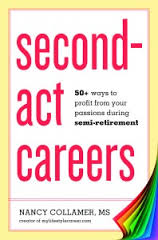A Time Thief is operating in our neighbourhood.
How else to explain that my mid-May promise to supply part two of my decluttering post has been outstanding for over three months?
Fittingly, a large part of the delay came from the very non-physical clutter I had planned to write about. My embarrassment at this irony led to further stalling. Could the death of this blog be far behind?
It took a nudge from this young blogger to get me back at the keyboard. (Thanks, Jen!)
While our decluttering project has inched desultorily forward this summer, we’ve been living the “No Pension, Will Travel” lifestyle on other fronts.
We’ve continued with our kedges this summer. On the heels of Cheryl’s first half-marathon in the Spring, I joined her for a “sprint triathlon” in May – her third, my first. I enjoyed it more than I expected, and we both bested our targets. Unlike Cheryl, I’d done relatively little triathlon-specific training this year, but my overall commitment to exercising six days a week really paid off.

Synchronized Diving Event at World Masters. Geodesic dome in the background is from Montreal’s Expo ’67.
Later in the summer, Cheryl swam her first three-kilometre open-water swim at the FINA World Masters Games in Montreal, Canada. She was thrilled to do this race for the first time ever, and even more thrilled to beat her target time, coming in 22nd in her age-group in an international competition. Along with about 15,000 other swimmers and supporters, we took the opportunity to sight-see in the second-largest French-speaking city in the world – after Paris. Through AirBnB, four of us arranged to stay in a stylish apartment belonging to a McGill University professor. Luxury digs in a great part of town for about a quarter the price of hotel accommodation.
Between swimming events, we explored the various parts of the Old Town, shopping districts, parks, squares and museums that Montreal is famous for. With unlimited passes for bus and Metro, it was easy to get around – and we were only a half-hour walk from the City Centre. Montreal in the summer has a vibrant outdoor cultural scene, and we found people friendly wherever we went. Everyone was willing to go along with our attempts at French, or switch to English when we got in over our heads.
Something that that stood out for us was the large number of cyclists in Montreal, both on and off the many dedicated bike lanes. Unlike our home town, helmets were in the minority. Those with helmets were more likely to be cycling up Mount Royal at 6am. Those without – often on shopping trips – were more “Montreal chic” – often on bicycles rented by the hour from the Bixi cycle network. We didn’t try it, but, in the summer, you can borrow a bike for free at some Metro stations. All this got us thinking more about a cycle trip through Quebec some summer. Cycle routes abound, and some say it’s like cycling Europe right here in North America.

“Montreal chic” – one of Montreal’s Finest sports pink camouflage, a protest against changes to their pension plan.
Our next big kedge comes next month, when we will tackle several of Croatia’s Dalmatian Islands by bicycle. We’ve been told to expect after-breakfast climbs to hilltops as high as 1600 feet above sea level, so we’ve taken every opportunity this summer to work on those leg muscles. With friends, or members of our outdoor club, we’ve tackled a number of areas with challenging hills of their own.
We started in June with a great couple of days in Washington’s San Juan Islands. No shortage of hills, but most were manageable. After we were forced to walk a steep hill in Orcas Island’s Enchanted Forest, we decided that Mount Constitution – all 2400 feet of it – would have to wait. We continued throughout the summer with several more island cycling excursions with our club, moving northwards into British Columbia’s Gulf Islands. One of those trips included some kayaking as well.
BC’s Northern Gulf Islands boast one advantage over their more southern cousins. In the summer, the water is often warm enough for swimming, especially after you’ve just cycled over the top of the island.. One thing about island cycling – every side trip down to a beautiful ocean bay necessitates a climb back up a hill. Putting in 1600 feet of vertical in an otherwise lazy day is not that hard to do. We’re feeling pretty confident about the hills of Korčula, Mljet, and Lastovo. I hope we’re not fooling ourselves!
We also got in some good visits with friends and family: a trip to the near-desert to visit the new home of friends who will retire this year; a visit from Cheryl’s brother and family on their way home from an Alaskan cruise; and our annual waterfront reunion with our friends from the Shedders. This year, we also got a chance to meet the third Shedder couple, if only for a couple of hours. Can an Australian reunion be far behind?

The gang from Shadowlawn, bracketed by two of the Shedders. (Photo courtesy of Heather of the Shedders.)
We also took advantage of some serendipity to bring together three groups for a wonderful evening last month. Our investigation of shared-housing options had led me to discover “Shadowlawn” – the joint Pittsburgh residence of Jean, Karen, & Louise (JKL) featured in “My House, Our House.” I emailed them, and let them know about the Shedders – and vice versa. They must have recognized kindred spirits: before long they were commenting regularly on each others’ blogs. When JKL ended up vacationing in our part of the world at the same time as our friends from the Shedders, they arranged to meet up, and the five of them agreed to present to our “Free at 55” Meetup group at a special “Cohouseholding Corroboree.” It turned out to be one of our best events of the year. You can read Heather’s account of the day on her blog, as well as JKL’s account on theirs.
We finished up that weekend attending a great performance of “Equivocation” by Bill Cain – one of the most engaging plays I’ve ever enjoyed. Heralded as “a play about telling the truth in difficult times,” it is most relevant to the times we find ourselves in this year.
With our weekends so long and full this summer, it was all we could do to pack our regular work schedules into three and four-day weeks in between. Not to mention a challenging one-week course on “interest-based” negotiation, giving our sons some assistance with consolidating their new careers and (for one of them) a new home, and regular chores around our house.

While in Montreal, we ran into this memory of John & Oko’s “Bed-in” from the 60s. Still relevant today.
“Life is what happens to us while we are making other plans.” – Allen Saunders (via John Lennon)
Reflecting on this summer of friends, family and fun has led me to see something more clearly.
I had viewed our decluttering project as the next step on our full transition to “No Pension, Will Travel.” When it stalled, I began to feel as if nothing was moving forward. My perspective fell into a “holding pattern”, waiting until I had the time to start addressing the “big concerns.” I lost my motivation to keep this blog up to date.
In the meantime, life happened. A life to be grateful for. I need to remember that. By all means, make big plans, always have something new to look forward to. But don’t forget to enjoy the meandering path that life follows all the while. For the river of time keeps flowing.
Over the summer, I read a couple of books by Dr. William “Bill” H. Thomas that gave me a new perspective on this ageing journey we’re all on. I first read his recently published “Second Wind”. Finding it both challenging and enlightening, I tracked down a copy of his now out-of-print “What are Old People For”. I enjoyed that one even more. These books alone merit a post of their own, but one important idea was that getting older offers us the opportunity to re-learn living in the present moment. As we plan the coming year – or two, or three – I also plan to heighten my enjoyment of life along the way.
So what’s ahead? What stories do we hope to post in the months to come?.
Later this month we embark on our long-awaited cycling trip in Croatia. It’s been a bit more organizing work than I’d counted on. Even though we’re signing on to a pre-existing tour, coordinating the plans of the 15 friends who are joining us has taken some doing. I’m hoping to share some of our lessons learned in a future post. But now that it’s close, we’re finally feeling the excitement. We plan to start our trip with a few days on our own in Ljubljana, the romantic capital of neighbouring Slovenia.

“Ljubljanica 01” by Mihael Grmek – Own work. Licensed under Creative Commons Attribution-Share Alike 3.0 via Wikimedia Commons
Cheryl has been mapping out her schedule of triathlons, open-water swims, and half-marathons for the Fall and Spring. One thing she learned from her Montreal competition is that she enjoys the regular training more than the competition, but somehow enrolling in the competitions keeps the training on track.
We’re also thinking about our longer cycling trips for the coming year or two. Besides Quebec, we’re also considering is a trip across the three Baltic countries, passing through the town where my father was born. This would give us the opportunity to meet some of my second cousins for the first time. The family had been out of touch since WWII, and was only reconnected when I started building my family tree on WikiTree a few years ago.

Trakai Castle in Lithuania, by Marcin Bialek (Own work) [GFDL, or CC-BY-SA-3.0] via Wikimedia Commons
As for the challenges – such as decluttering – I imagine they’ll be part of that life that keeps on happening while we’re busy making plans.
Related Posts:
- Decluttering: “Clutterphobia”
- Kedges: “Younger Next Year”
- Outdoor Clubs: “Adventures in Our Back Yard”
- Group Travel: “Why Travel Alone?”
- Shared Housing Options: “Why Live Alone?”
- Ageing Well in Community: “Ageing Heads in the Sand?”
- Encore Careers: “Dancing Your Second-Act Career”
- Big Plans: “Living Inside a Bucket List”
- Living in the Present: “Elder Wisdom”
Want to know more?
- Montreal: Attractions (TripAdvisor) – Old Town – 2014 FINA World Masters Games
- Cycling in Quebec & Montreal: Route Verte – Montreal Bike Lanes – Bixi cycle rental network
- San Juan Islands, WA (official) – Mount Constitution
- British Columbia’s Gulf Islands – Northern Gulf Islands
- Croatia & Slovenia: Croatia (Lonely Planet) – Southern Dalmatian Islands (Rough Guides) – Korčula – Dalmatia by Bike & Boat (Bike Tours Direct) – Slovenia (official) – Ljubljana (official)
- AirBnB: Rent unique places to stay from local hosts in 190 countries.
- Shared Housing: “My House, Our House” (Pittsburgh) – Shedders (Australia)
- Interest-based negotiation: you may need this if you live or travel with anyone
- “Equivocation” by Bill Cain: a play about telling the truth in difficult times – Review
- Truth about Ageing: Dr. William “Bill” Thomas – “Second Wind” – “What are Old People For”
For comment:
- What do you do to enjoy the present moment while working towards retirement?

































